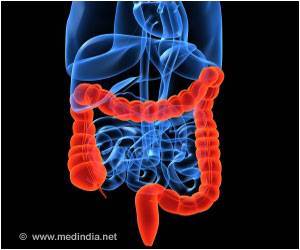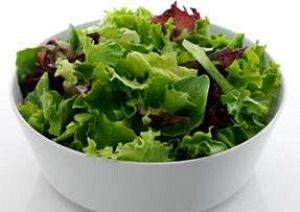Recently Dr. Mark Hyman mentioned a 7-point program to avoid that heart attack. If you follow the recommendations below, chances are that you do not only avoid heart attacks, but also strokes, high blood pressure, diabetes and obesity.
The Potsdam (or EPIC) study has shown that adhering to 4 simple things can reduce
Diabetes by 93%
Heart attacks by 81%
Strokes by 50%
All cancers by 36%.
What were those 4 points?
- Not smoking
- Exercising 3.5 hours a week
- Eating a healthy diet
- And maintaining a healthy weight
So with a few more points added it is no wonder that the figures can be even more impressive.
The INTERHEART study
Other studies have also shown the importance of lifestyle changes to improve health outcomes; the INTERHEART study was based on 30,000 people in 52 countries that were followed along. Researchers found that 90 percent of all heart disease could be prevented by simple lifestyle changes. I have added another point, regular exercise that has been proven to be very effective in preventing many diseases.
So, what are the 8 points that can assure that our health improves?
1.Avoid that heart attack with a colorful, plant-based diet
Your dietary intake is important, because it provides all of the building blocks for your body. You want whole foods that are rich in phytonutrients. Often rainbow colors are mentioned, because the more varied your vegetables look, the more balanced the micronutrients, vitamins and minerals in the food items. Below we will learn that we want to avoid processed foods and hydrogenated fats, but we want to increase fiber and omega-3 fatty acids.
2. Avoid that heart attack by stabilizing your blood sugar
Never eat refined carbs alone, as this goes chases up your blood sugar levels and causes unhealthy insulin reactions. Too much insulin production causes inflammation in the body, which can cause inflammatory bowel disease, arthritis, clogged arteries with heart attacks and strokes and Alzheimer’s disease. You want to balance complex carbs from vegetables with healthy fats and clean protein in every meal. Avoid sugars- no matter whether it is “natural brown” or white sugar and refined carbohydrates. Your pancreas does not differentiate between honey and other sugars, and it will react the same way!
3.Avoid that heart attack by increasing fiber intake
The more fiber you can tolerate, the better. 50 grams would be ideal, but not everybody can tolerate this due to bloating or a queasy stomach. But even if you can add 5 or 10 grams of fiber per day, this is progress. Fiber decreases LDL cholesterol by intervening with the enterohepatic pathway. Fiber is found in nuts, beans, vegetables, seeds and berries that have lower sugar in them. You can also take a fiber supplement directly like psyllium husk.
4.Avoid that heart attack by cutting out processed foods
Processed foods and junk foods are popular as they fill you up fast when you are hungry. But they need to be avoided at all costs. Sodas, juices and diet drinks affect your sugar and fat metabolism. The extra calories that come from sugary drinks are the biggest contributors to diabetes, heart disease and obesity. Even 100% fruit juice is not healthy, because all of the fiber is removed and you are drinking sugar water to which your pancreas reacts by producing extra insulin. As already discussed the extra insulin just causes inflammation.
Homemade lemon juice
May I suggest a homemade lemon juice that you make by squeezing ½ lemon into a glass; add a tiny bit of Stevia for sweetening and sparkling mineral water. This is a healthy drink without sugar. You can drink this as often as you want. Another component of processed food are omega-6 fatty acids. They are in processed foods, because they increase the shelf life in stores. But they cause inflammation in the body unless balanced by omega-3 fatty acids (see below).
5.Avoid that heart attack by increasing omega-3 fatty acids
Fish and seafood provide you with healthy omega-3 fatty acids. Unfortunately not all fish are healthy. Tuna is a predator fish that accumulates a lot of mercury from the polluted oceans. As a result of this it is not on my fish list. I prefer wild salmon. I also take molecularly distilled fish oil, which has omega-3 fatty acids in it. Many processed foods contain only omega-6 fatty acids, because this is the cheapest way to produce them (they are based on vegetable oils). Also avoid soybean oil, which is the most popular oil in the last few decades to foul up the omega-6 to omega-3 ratio.
Omega-6 to omega-3 ratio
This ratio should be 1:1 to 3:1, but many Americans’ omega-6 to omega-3 ratio is 6:1 to 18:1. Omega-6-fatty acids cause arthritis, heart disease and strokes. Instead you want to eat healthy fats like omega-3 fatty acids contained in nuts and fish. You can also add molecularly distilled, high potency omega-3 fatty acids as a supplement to help restore the balance between omega-6 and omega-3 in your food intake.
6.Avoid that heart attack by eliminating all hydrogenated fat
Hydrogenated fat like margarine has been shown to cause accelerated hardening of the arteries, which causes heart attacks and strokes. Read labels and eliminate any food that contains hydrogenated fats. If the label indicates that you are dealing with a product containing ”partially hydrogenated oil”, stay away from it as well! Butter from grass fed cows is a healthy fat. Olive oil and coconut oil are both good cooking oils. Olive oil is also good in salad dressings.
7.Avoid that heart attack by keeping alcohol to a minimum
The problem with alcohol is that it is a cell poison. On the other hand small amounts have been show to reduce heart attacks and strokes (one glass for women, two glasses for men per day). However, due to the cell poison effect even low amounts of alcohol contribute to cancer causation, and as a result of that alcohol remains a problem. If you must consume alcohol limiting the intake to minimal amounts is prudent. Alcohol can cause ovarian cancer in women and prostate cancer in men. In both sexes pancreatic cancer can be caused by alcohol. Higher amounts of alcohol raise inflammation with elevation of blood pressure, heart attacks and strokes. One recommendation: either consume no alcohol or use alcohol in moderation. One glass does not kill you, but several ones may do it over time!
8.Avoid that heart attack by exercising regularly
Regular exercise is yet another factor that can help you to reduce heart attacks, strokes and cancer even further. I added it as point 8, because it is fundamentally such an important preventative factor. Some studies have shown as much as a 50% drop in many diseases simply by introducing regular exercise.
Conclusion
It is all about lifestyle factors. Pay attention to your diet. Add fiber, subtract sugar. Avoid processed foods, omega-6 fatty acids and hydrogenated fat. Have enough omega-3 fatty acids as fish and supplements. Keep alcohol to a minimum. Your benefits from changing these lifestyle factors, result in huge benefits. You are avoiding 90% of diabetes, 80% of heart attacks, 50% of strokes and 35% of cancers.








